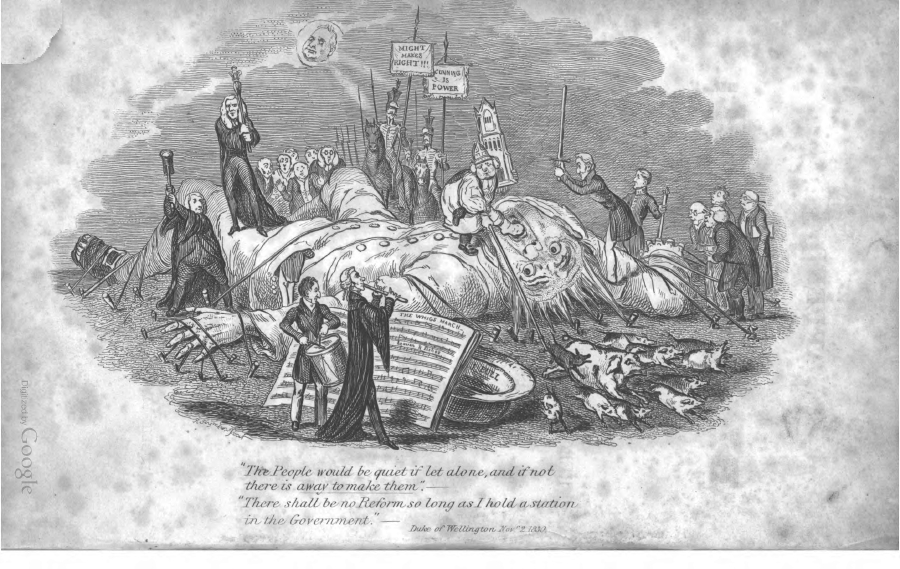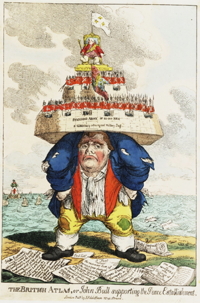
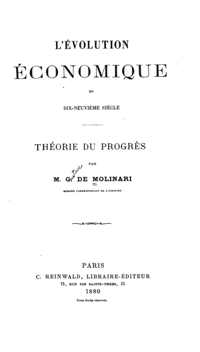
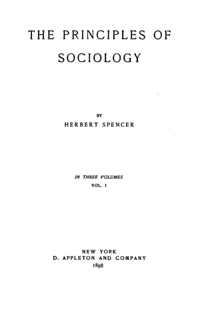
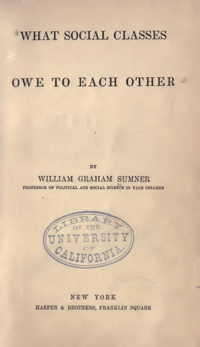
|
There is a long tradition within classical liberalism of thinking about the state and the ruling elites which control it for their own benefit and at the expense of ordianry tax payers, or "class analysis" as it came to be known. It was part of a broader theory of classical liberal sociology which has been much neglected.
I provide a summary of this way of thinking in a chapter on "Class" in The Routledge Companion to Libertarianism. Edited by Matt Zwolinski and Benjamin Ferguson (Routledge, 2022), pp. 291-307. Details from the publisher's website here. PDF of my chapter here.
See also the following blog posts:
- “The Scandalous Neglect of Classical Liberal Sociology” (30 May, 2021)
- James Mill on Politics and Class (15 October, 2020)
and some recent additions to the Library:
- England had Herbert Spencer (1820-1903); France had Gustave de Molinari (1819-1912); and America had William Graham Sumner (1840-1910). All three did pioneering work in the emerging discipline of “sociology”, were radical classical liberals (libertarians), and were active in popularizing their ideas via journalism. Sumner was a professor of sociology at Yale University who wrote on free trade and protection, sound money and banking, and was an outspoken member of the American Anti-Imperialist League. His work on classical liberal class analysis should also be mentioned, where he championed the interests of “The Forgotten Man and Woman” who paid the taxes which made it possible for the various vested interest groups, both large (plutocrats and party bosses) and small (those who sought government jobs), to enjoy their privileged position. Sumner also wrote several works against the theory and practice of socialism. In his view the great clash of the future would be between socialists from below and plutocrats from above, with the “forgotten” man and woman caught in the middle.We have online four volumes of his collected essays, his major treatise on sociology, and several other works:
- as part of my ongoing commemoration of Gustave de Molinari (1819-1912)'s bicentennial, I have added HTML versions of his three major sociological works (and one later summary volume) which we already have in facs. PDF. They make a very interesting parallel intellectual achievement to rival that of his contempory radical English liberal Herbert Spencer (1820-1903) and his Principles of Sociology (1874-96). What makes Molinari very unusual is his economic analysis of literally "everything" including marriage and having a family, art, urban development, the behaviour of politicians and bureraucrats (so early public choice theory), why governments often fail in managing economic resources and services like the police and the military, the rise of market institutions over the centuries, the role of war in economic development and the rise of states, and very interesting from my perspective, the emergence of political classes and how they organise and use the state for their own purposes and benefit (he made a fundamental distinction between "les mangeurs des taxes" (the tax eaters) and the tax papyers. He began doing this in his articles for the Dictionnaire de l'économie politique (1852) and later returned to it some 30 years later in the following works:
- L’évolution économique du XIXe siècle: théorie du progrès (Economic Evolution in the 19th Century: A Theory of Progress) (1880) [HTML] and [facs. PDF]
- L’évolution politique et la révolution (Political Evolution and the Revolution) (1884) [HTML] and [facs. PDF]
- Grandeur et decadence de la guerre (The Rise and Fall of War) (1898) [HTML] and [facs. PDF]
- and a final fourth volume which summarises his life's work on this topic: Économie de l’histoire: Théorie de l’Évolution (The Economics of History: A Theory of Evolution) (1908) [HTML] and [facs. PDF]
- dsee also his earlier work on class analysis based on the idea of the conflcit between the "tax-payers" and the "tax-eaters": Les Révolutions et le despotisme envisagés au point de vue des intérêts matériels (Revolutions and Despotsism seen from the perspective of material interests) (1852) In HTML and facs. PDF (en français)
- "An Introduction to Classical Liberal/Libertarian Class Analysis" (12 Oct. 2020); and a longer version: "Libertarian Class Analysis: An Historical Survey"
- "Understanding Class Divisions in Society: A Classical Liberal Approach". A talk organised by the Adam Smith Centre and the School of Social Sciences, Singapore Management University, 20 Jan. 2020. [HTML] and [PDF]
Some older material:
[See the archive] |

